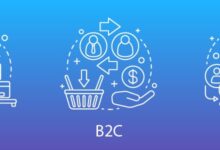B2B Companies: 7 Powerful Strategies to Dominate the Market
Welcome to the world of B2B companies, where relationships drive revenue and strategy shapes success. In this comprehensive guide, we’ll explore what makes B2B businesses tick, how they thrive, and the proven tactics that set industry leaders apart.
What Are B2B Companies and How Do They Work?

B2B companies—short for business-to-business—are organizations that sell products or services to other businesses rather than individual consumers. These entities form the backbone of global commerce, enabling everything from manufacturing to digital transformation.
The Core Definition of B2B Companies
At its essence, a B2B company operates by providing goods or services that help other businesses function, grow, or innovate. Unlike B2C (business-to-consumer) models, B2B transactions typically involve longer sales cycles, higher order values, and more stakeholders in decision-making processes.
- B2B companies serve other organizations in supply chains, tech infrastructure, consulting, logistics, and more.
- Examples include software providers like Salesforce, industrial equipment manufacturers like Siemens, and wholesale distributors.
- The focus is on solving business problems, improving efficiency, or enabling scalability.
“B2B isn’t just about selling—it’s about building partnerships that last.” — Marc Benioff, CEO of Salesforce
Key Differences Between B2B and B2C Models
Understanding the contrast between B2B and B2C is crucial for anyone navigating the corporate landscape. While both aim to generate profit, their approaches differ significantly.
- Audience: B2B targets professionals and decision-makers; B2C sells directly to end-users.
- Sales Cycle: B2B often involves months of negotiation and evaluation; B2C decisions are usually faster and emotion-driven.
- Marketing Tone: B2B content is informative, data-backed, and solution-focused; B2C leans toward emotional appeal and lifestyle branding.
For deeper insights into these distinctions, check out Investopedia’s breakdown of B2B vs B2C.
Top 7 Types of B2B Companies by Industry and Function
B2B companies span a wide range of industries and operational models. Each type plays a unique role in the ecosystem of modern business. Let’s dive into the most common categories.
1. Manufacturers and Industrial Suppliers
These B2B companies produce raw materials, components, or finished goods used by other businesses. They are essential in sectors like automotive, construction, and electronics.
- Examples: General Electric (industrial machinery), 3M (industrial tapes and adhesives).
- They often operate large-scale production facilities and maintain complex distribution networks.
- Relationships with OEMs (Original Equipment Manufacturers) are critical for long-term contracts.
2. Software and SaaS Providers
One of the fastest-growing segments among B2B companies, software firms offer tools that streamline operations, enhance security, or boost productivity.
- Examples: Microsoft (enterprise software), Zoom (video conferencing for teams), HubSpot (marketing automation).
- SaaS (Software as a Service) models dominate, offering subscription-based access to cloud platforms.
- Customer success and onboarding are key metrics for retention and growth.
Learn more about SaaS trends at Gartner’s SaaS Market Analysis.
3. Professional Services Firms
These B2B companies provide expertise in areas such as consulting, legal, accounting, and human resources.
- Examples: Deloitte (audit and advisory), McKinsey & Company (management consulting), ADP (payroll services).
- Value is delivered through knowledge, experience, and strategic insight rather than physical products.
- Client trust and reputation are paramount for securing high-value contracts.
4. Wholesalers and Distributors
Acting as intermediaries, these B2B companies purchase goods in bulk from manufacturers and resell them to retailers or other businesses.
- Examples: Sysco (foodservice distribution), Grainger (industrial supplies).
- They manage vast inventories and logistics networks to ensure timely delivery.
- Digital platforms are increasingly used to streamline ordering and tracking.
5. Technology and IT Infrastructure Providers
These B2B companies build the digital backbone for modern enterprises, offering hardware, networking solutions, and cybersecurity services.
- Examples: Cisco (networking equipment), Intel (semiconductors), Palo Alto Networks (cybersecurity).
- They enable digital transformation and support remote work environments.
- Innovation cycles are rapid, requiring constant R&D investment.
6. Marketing and Advertising Agencies
Specialized B2B companies that help other businesses promote their offerings through targeted campaigns and brand development.
- Examples: WPP, Omnicom Group, and specialized digital agencies like WebFX.
- Services include SEO, PPC, content creation, and analytics.
- Success is measured by ROI, lead generation, and conversion rates.
7. Logistics and Supply Chain Solutions
These B2B companies ensure the smooth movement of goods across global markets, managing transportation, warehousing, and inventory systems.
- Examples: FedEx Supply Chain, DHL Global Forwarding, Flexport.
- They use advanced tracking technologies and AI-driven forecasting tools.
- Resilience and adaptability are crucial in times of disruption (e.g., pandemics, geopolitical issues).
How B2B Companies Generate Revenue and Scale
Revenue generation in B2B companies differs significantly from consumer-focused models. The emphasis is on long-term contracts, recurring income, and high customer lifetime value (CLTV).
Common Revenue Models in B2B Companies
B2B companies employ various monetization strategies depending on their industry and service offering.
- Subscription-Based Model: Common in SaaS, where clients pay monthly or annually for access (e.g., Slack, Zoom).
- Licensing Fees: Charging businesses for the right to use proprietary software or technology (e.g., Oracle databases).
- Project-Based Pricing: Used by consulting and creative agencies, where fees are tied to specific deliverables.
- Usage-Based Billing: Customers pay based on consumption (e.g., AWS cloud computing services).
- Wholesale Markup: Distributors buy low from manufacturers and sell at a markup to retailers or end-businesses.
Scaling Strategies for Sustainable Growth
Scaling a B2B company requires more than just increasing sales—it demands operational excellence, customer retention, and market expansion.
- Customer Retention: Retaining existing clients is far more cost-effective than acquiring new ones. According to Bain & Company, increasing customer retention rates by 5% can increase profits by 25% to 95%.
- Account-Based Marketing (ABM): A targeted approach focusing on high-value accounts with personalized outreach.
- Partnerships and Alliances: Collaborating with complementary B2B companies to expand reach (e.g., Salesforce and AWS).
- Global Expansion: Entering new markets with localized strategies and regulatory compliance.
The Role of Technology in Modern B2B Companies
Technology is no longer optional for B2B companies—it’s the engine of innovation, efficiency, and competitive advantage.
Digital Transformation in B2B Operations
From CRM systems to AI-powered analytics, digital tools are reshaping how B2B companies operate.
- Cloud computing enables scalable infrastructure without heavy upfront investment.
- ERP (Enterprise Resource Planning) systems integrate finance, HR, and supply chain data into a single platform.
- Automation reduces manual tasks in invoicing, order processing, and customer support.
Explore digital transformation trends at McKinsey’s Digital Transformation Insights.
AI and Data Analytics in B2B Decision-Making
Artificial intelligence and big data are revolutionizing how B2B companies understand their customers and optimize performance.
- Predictive analytics help forecast demand, identify churn risks, and personalize marketing.
- Chatbots and virtual assistants improve customer service response times.
- Machine learning algorithms optimize pricing strategies and sales forecasting.
“Data is the new oil, but only if you know how to refine it.” — Clive Humby, Mathematician and Data Science Pioneer
Marketing Strategies That Work for B2B Companies
Effective marketing in the B2B space is less about flashy ads and more about building credibility, trust, and thought leadership.
Content Marketing and Thought Leadership
B2B buyers rely heavily on information before making decisions. High-quality content positions your company as an authority.
- Whitepapers, case studies, and industry reports are highly valued by decision-makers.
- Blogs and webinars educate prospects and nurture leads through the funnel.
- LinkedIn is a powerful platform for sharing insights and engaging with professionals.
Check out Content Marketing Institute for best practices in B2B content strategy.
Email Marketing and Lead Nurturing
Email remains one of the most effective channels for B2B communication, especially when personalized and segmented.
- Drip campaigns guide prospects through the buyer’s journey with relevant content.
- Lead scoring helps prioritize high-intent contacts for sales follow-up.
- A/B testing improves open rates and click-through performance.
Social Selling and LinkedIn Optimization
Social selling—using social media to build relationships and influence purchasing decisions—is now a cornerstone of B2B marketing.
- Sales reps who use LinkedIn to engage prospects see 51% higher win rates (LinkedIn Sales Solutions).
- Optimizing company pages with clear value propositions and client testimonials builds trust.
- Engaging with industry groups and publishing original content increases visibility.
Challenges Facing B2B Companies Today
Despite their critical role in the economy, B2B companies face numerous challenges that can impact growth and sustainability.
Economic Volatility and Market Uncertainty
Global events like inflation, supply chain disruptions, and geopolitical tensions directly affect B2B operations.
- Fluctuating raw material costs impact pricing and margins.
- Recession fears lead businesses to delay investments or freeze budgets.
- Diversifying revenue streams and maintaining cash reserves can mitigate risk.
Increasing Competition and Price Pressure
As more players enter the B2B space, differentiation becomes harder and price wars more common.
- Commoditization of services forces companies to emphasize value over cost.
- Innovation and customer experience become key differentiators.
- Building strong brand equity helps justify premium pricing.
Talent Acquisition and Retention
Attracting skilled professionals—especially in tech, sales, and data science—is a growing challenge for B2B companies.
- Remote work expectations have raised the bar for workplace flexibility.
- Competitive compensation, career development, and company culture matter more than ever.
- Employer branding plays a crucial role in standing out to top talent.
Future Trends Shaping the Evolution of B2B Companies
The future of B2B is being shaped by technological innovation, changing buyer behaviors, and evolving business models.
The Rise of AI-Powered Sales and Customer Service
Artificial intelligence is transforming how B2B companies interact with clients and close deals.
- AI-driven sales assistants can qualify leads, schedule meetings, and even draft proposals.
- Smart chatbots handle routine inquiries, freeing up human agents for complex issues.
- Predictive lead scoring identifies the most promising prospects based on behavioral data.
Increased Focus on Sustainability and ESG
Environmental, Social, and Governance (ESG) factors are becoming central to B2B decision-making.
- Buyers prefer suppliers with sustainable practices and transparent supply chains.
- Companies are investing in carbon footprint reduction and green logistics.
- ESG reporting is increasingly required by investors and regulators.
Learn more at World Economic Forum’s ESG Initiatives.
Hyper-Personalization Through Data
B2B buyers now expect the same level of personalization they receive in B2C experiences.
- Dynamic pricing based on customer history and market conditions.
- Customized product recommendations using AI.
- Personalized email journeys that reflect the buyer’s industry and pain points.
Success Stories: How Leading B2B Companies Achieved Market Dominance
Examining real-world examples provides valuable lessons for aspiring B2B leaders.
Salesforce: Building an Ecosystem Around CRM
Salesforce started as a cloud-based CRM provider and evolved into a full-stack enterprise platform.
- Leveraged the AppExchange to create a marketplace for third-party integrations.
- Invested heavily in customer success and training (Trailhead platform).
- Focused on innovation with AI (Einstein) and M&A (acquiring Slack).
HubSpot: Democratizing Inbound Marketing
HubSpot revolutionized B2B marketing by making inbound strategies accessible to small and mid-sized businesses.
- Created educational content that attracted millions of users.
- Offered a free CRM to lower the entry barrier.
- Expanded into sales, service, and CMS hubs for a complete suite.
Zoom: Scaling Through Simplicity and Reliability
While initially B2C-friendly, Zoom became a dominant B2B communication tool during the pandemic.
- Focus on ease of use and minimal technical friction.
- Enterprise-grade security features won over corporate clients.
- Strategic partnerships with hardware vendors enhanced meeting room integration.
What defines a B2B company?
A B2B company sells products or services to other businesses rather than individual consumers. These organizations operate in sectors like manufacturing, software, logistics, and professional services, focusing on solving business challenges and enabling operational efficiency.
How do B2B companies differ from B2C?
B2B companies typically have longer sales cycles, multiple decision-makers, and higher transaction values compared to B2C. Their marketing emphasizes logic, ROI, and long-term value, while B2C focuses on emotion, convenience, and immediate gratification.
What are the most profitable B2B industries?
Some of the most profitable B2B sectors include SaaS and cloud computing, cybersecurity, enterprise software, consulting, and industrial technology. These industries benefit from recurring revenue models, high margins, and strong demand for digital transformation.
How can a B2B company improve customer retention?
B2B companies can boost retention by delivering exceptional customer success programs, offering personalized support, maintaining regular communication, and continuously demonstrating value through analytics and ROI reporting.
What role does AI play in B2B marketing?
AI enhances B2B marketing by enabling predictive analytics, automating lead scoring, personalizing content, optimizing ad spend, and improving customer segmentation. It allows marketers to deliver the right message to the right person at the right time.
Understanding B2B companies is essential for anyone involved in modern business. From their diverse types and revenue models to the challenges they face and the trends shaping their future, these organizations are the engines of global economic activity. By leveraging technology, focusing on customer value, and adapting to change, B2B companies can not only survive but thrive in an increasingly competitive landscape. Whether you’re building, selling to, or partnering with B2B firms, the insights in this guide provide a solid foundation for long-term success.
Further Reading:








